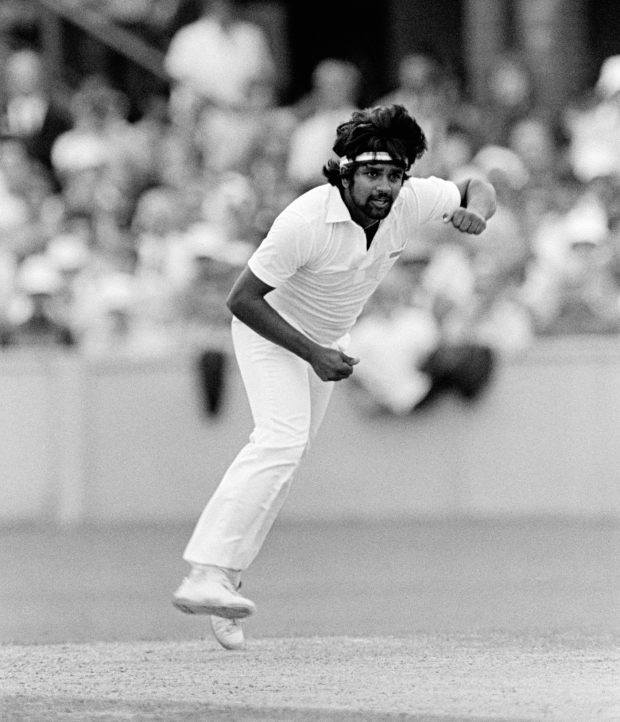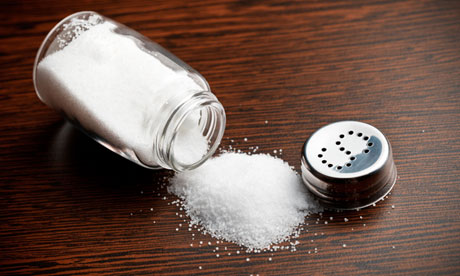
MARTIN CROWE in Cricinfo MAY 2015
Truth be known, I love to hate the Australians more than anyone else. And therefore the man who got under their skin the most is my hero. Appearances can be deceiving, and when it comes to Arjuna Ranatunga, the rotund Sri Lankan mastermind, there was nothing soft in his underbelly. He is as tough a cricketer as I have ever come across.
We represented our countries at the same time, both very young, eager allrounders hoping to fit into the cut and thrust of international cricket. Sri Lanka were just beginning their climb, possessing many fine cricketers, if not hardened professionals. New Zealand were a nice mix of amateur and professional, led in example by the pro's pro, Richard Hadlee.
I first spoke to Arjuna while fielding under a helmet at short legin Kandy in 1984. He was defiantly chirpy at the crease, never taking a backward step. His game was a bit limited - the cut and sweep were his release shots. He appeared unfit, yet he never lacked for effort or punch. He quickly became known as "Chef": hungry, dressed in white, and ready to give hell to anyone who didn't conform to the rules of his workspace.
We teased each other a little but deep down we had huge respect for one another, and I loved his smile and zest for life. He had no out-of-control ego, or fear, just a massive heart and a cunning mind. Despite Sri Lanka having no experience as such, Arjuna soaked up all he could. It was as if it was preordained - his apprenticeship was a natural platform for him to learn how to mastermind his team to unprecedented glory.
He quickly became known as "Chef": hungry, dressed in white, and ready to give hell to anyone who didn't conform to the rules of his workspace
I was more comfortable bowling to Arjuna than batting against him. I could swing it away from him, and enjoyed following up my bouncers with a prolonged look to see his response. He was always muttering something and smiling. When he bowled to me, he knew I feared getting out to his miserable deflated wobblies.
Regrettably, he dismissed me too often, notably in Wellington, when I was one short of being the first Kiwi to post a triple-century. I recall the moment when he got to the end of his run-up, beaming ear to ear. He had a gift for me. At that precise moment, up popped the thought that I had already achieved the triple-century. I didn't remove the thought; instead, I hung on to the feeling a bit longer. "Heck, you've done it," I muttered.
Arjuna rolled in and offered up a juicy half-volley wide of off stump. It was a glorious finish to a hard-fought draw, and some history. I never saw the ball leave his hand. My mind was scrambled as I jumped from "Done it", to "Where is it?" Seeing it very late and very wide, I lashed out in desperation, the blade slicing the ball and sending a thick edge into the slip cordon. Hashan Tillakaratne, the wicketkeeper, moved swiftly and calmly to his right and plucked the ball millimetres from the ground.
While Arjuna was upset for me, I was angry and inconsolable. A couple of weeks later, in the Hamilton Test, he dealt it to me again with the same mode of dismissal. Unintentionally, he had got under my skin, in the nicest possible way. I began to hate facing his gentle floating autumn leaves.
By 1996 he was a wise sage. He knew his team and their strengths, and he knew what buttons needed pushing. He saw the Australians as an easy target. He saw how false they could be: loud, lippy banter masking their own fears, often turning into personal abuse when the pressure mounted. He believed the more they resorted to mental disintegration the more they exposed themselves, diverting their attention from their obvious skill and from the job at hand.
Truth be known, I love to hate the Australians more than anyone else. And therefore the man who got under their skin the most is my hero. Appearances can be deceiving, and when it comes to Arjuna Ranatunga, the rotund Sri Lankan mastermind, there was nothing soft in his underbelly. He is as tough a cricketer as I have ever come across.
We represented our countries at the same time, both very young, eager allrounders hoping to fit into the cut and thrust of international cricket. Sri Lanka were just beginning their climb, possessing many fine cricketers, if not hardened professionals. New Zealand were a nice mix of amateur and professional, led in example by the pro's pro, Richard Hadlee.
I first spoke to Arjuna while fielding under a helmet at short legin Kandy in 1984. He was defiantly chirpy at the crease, never taking a backward step. His game was a bit limited - the cut and sweep were his release shots. He appeared unfit, yet he never lacked for effort or punch. He quickly became known as "Chef": hungry, dressed in white, and ready to give hell to anyone who didn't conform to the rules of his workspace.
We teased each other a little but deep down we had huge respect for one another, and I loved his smile and zest for life. He had no out-of-control ego, or fear, just a massive heart and a cunning mind. Despite Sri Lanka having no experience as such, Arjuna soaked up all he could. It was as if it was preordained - his apprenticeship was a natural platform for him to learn how to mastermind his team to unprecedented glory.
He quickly became known as "Chef": hungry, dressed in white, and ready to give hell to anyone who didn't conform to the rules of his workspace
I was more comfortable bowling to Arjuna than batting against him. I could swing it away from him, and enjoyed following up my bouncers with a prolonged look to see his response. He was always muttering something and smiling. When he bowled to me, he knew I feared getting out to his miserable deflated wobblies.
Regrettably, he dismissed me too often, notably in Wellington, when I was one short of being the first Kiwi to post a triple-century. I recall the moment when he got to the end of his run-up, beaming ear to ear. He had a gift for me. At that precise moment, up popped the thought that I had already achieved the triple-century. I didn't remove the thought; instead, I hung on to the feeling a bit longer. "Heck, you've done it," I muttered.
Arjuna rolled in and offered up a juicy half-volley wide of off stump. It was a glorious finish to a hard-fought draw, and some history. I never saw the ball leave his hand. My mind was scrambled as I jumped from "Done it", to "Where is it?" Seeing it very late and very wide, I lashed out in desperation, the blade slicing the ball and sending a thick edge into the slip cordon. Hashan Tillakaratne, the wicketkeeper, moved swiftly and calmly to his right and plucked the ball millimetres from the ground.
While Arjuna was upset for me, I was angry and inconsolable. A couple of weeks later, in the Hamilton Test, he dealt it to me again with the same mode of dismissal. Unintentionally, he had got under my skin, in the nicest possible way. I began to hate facing his gentle floating autumn leaves.
By 1996 he was a wise sage. He knew his team and their strengths, and he knew what buttons needed pushing. He saw the Australians as an easy target. He saw how false they could be: loud, lippy banter masking their own fears, often turning into personal abuse when the pressure mounted. He believed the more they resorted to mental disintegration the more they exposed themselves, diverting their attention from their obvious skill and from the job at hand.

A streamlined Arjuna bowls in the 1983 World Cup © Getty Images
On the eve of the World Cup final he told the many drooling media hounds that Shane Warne was just an average bowler. It caused a violent reaction, more so because "Chef" had been pecking away at the Aussie psyche for a few years and this was the ultimate insult. While Warne tightened with fury, Aravinda de Silva - Arjuna's right-hand man and master batsman - loosened up. Two buttons pressed, both for different purposes, both pushed to achieve one result.
Arjuna dabbed the winning run down to his favourite third-man area. Upon seeing it disappear to the boundary, he reached down and grabbed a stump. It was as if he were picking up the stake he had earlier rammed in the ground upon his arrival. That stake stood for a nation that had cracked the code to win a world title. Ranatunga's name was etched in history forever.
We became close companions off the field. He would take me home to dinner, offering his favourite foods and delights. Not surprisingly, he enjoyed a fine feast, probably more than he did cricket, and I loved hanging out with someone so at ease. He also helped me get expert treatment for my ailing legs, so I could get fit again after developing hamstring problems due to my knee condition. He took me to places I never knew existed, and I felt safer with him in a foreign land than I did in any other.
Arjuna wasn't really an arch-enemy or a player I loved to hate. I loved him, full stop. Mostly I loved the way he stood up to the big boys, the bullies, and bulldozed them back in his unique inspiring way. He represented the underdog.
Arjuna left everything out on the park and, going by his healthy waistline, that was quite a plateful.
